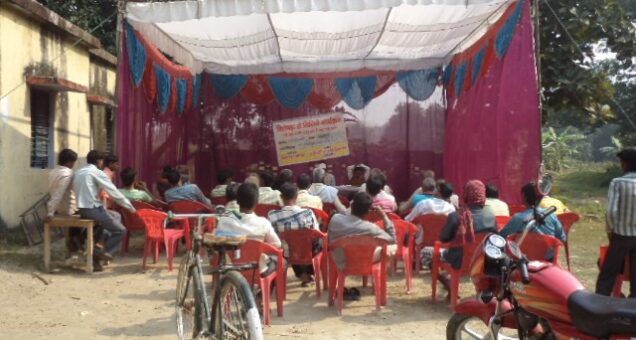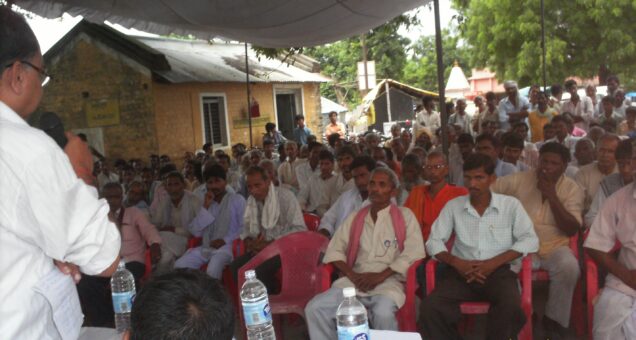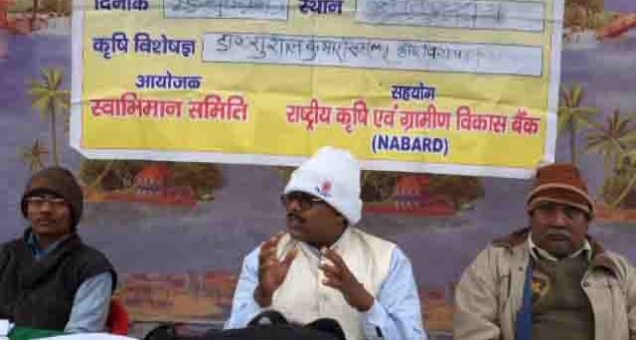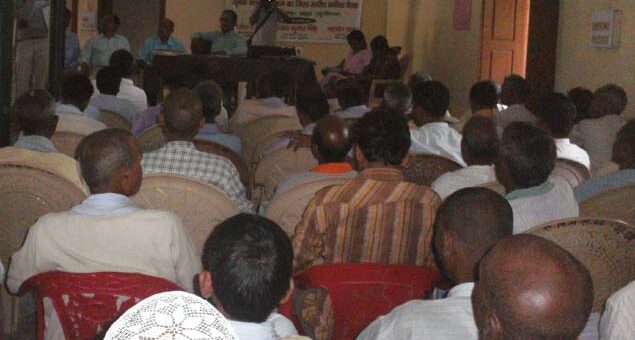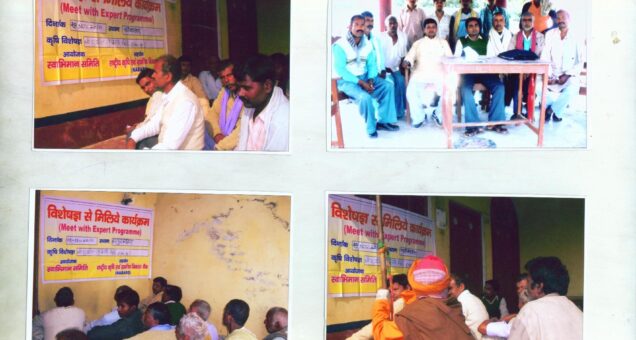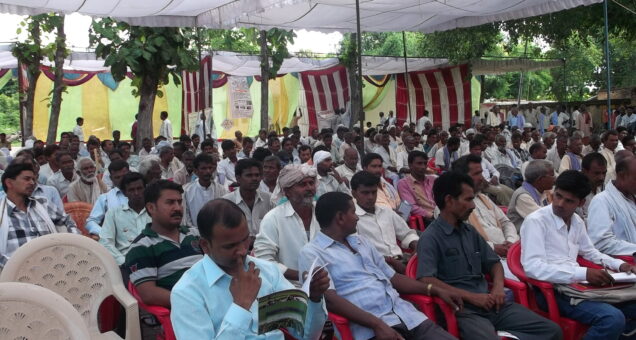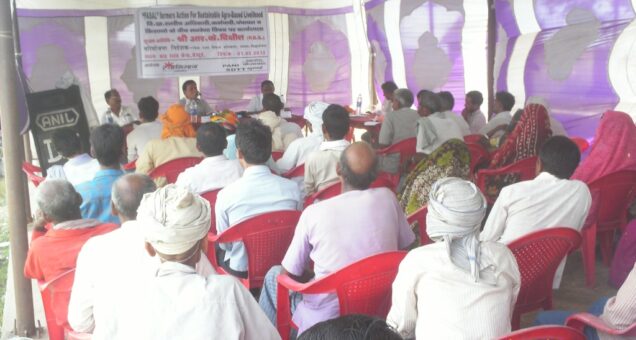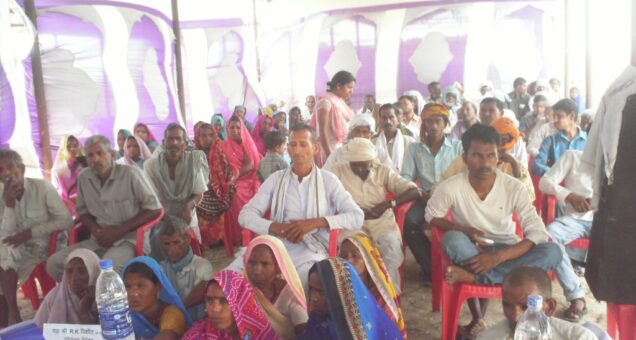Krishak Club Program's
The Krishak Club Program, initiated by Swabhiman Samiti in 2009-10, was designed to empower farmers in Kushinagar District, Uttar Pradesh, by providing access to modern agricultural techniques, financial services, and government schemes. With the formation of 52 Krishak Clubs across Khadda and Nebua Kotwa blocks, the program aimed to foster community collaboration, improve farming practices, and enhance the livelihoods of farmers through education, skill development, and financial inclusion.
Key Highlights:
- Target Area: Kushinagar District, focusing on Khadda and Nebua Kotwa development blocks.
- Krishak Clubs Formed: A total of 52 clubs were established across 27 villages.
- Expert Guidance: Organized 16 "Meet the Experts" programs with agricultural scientists to improve farming practices.
SS




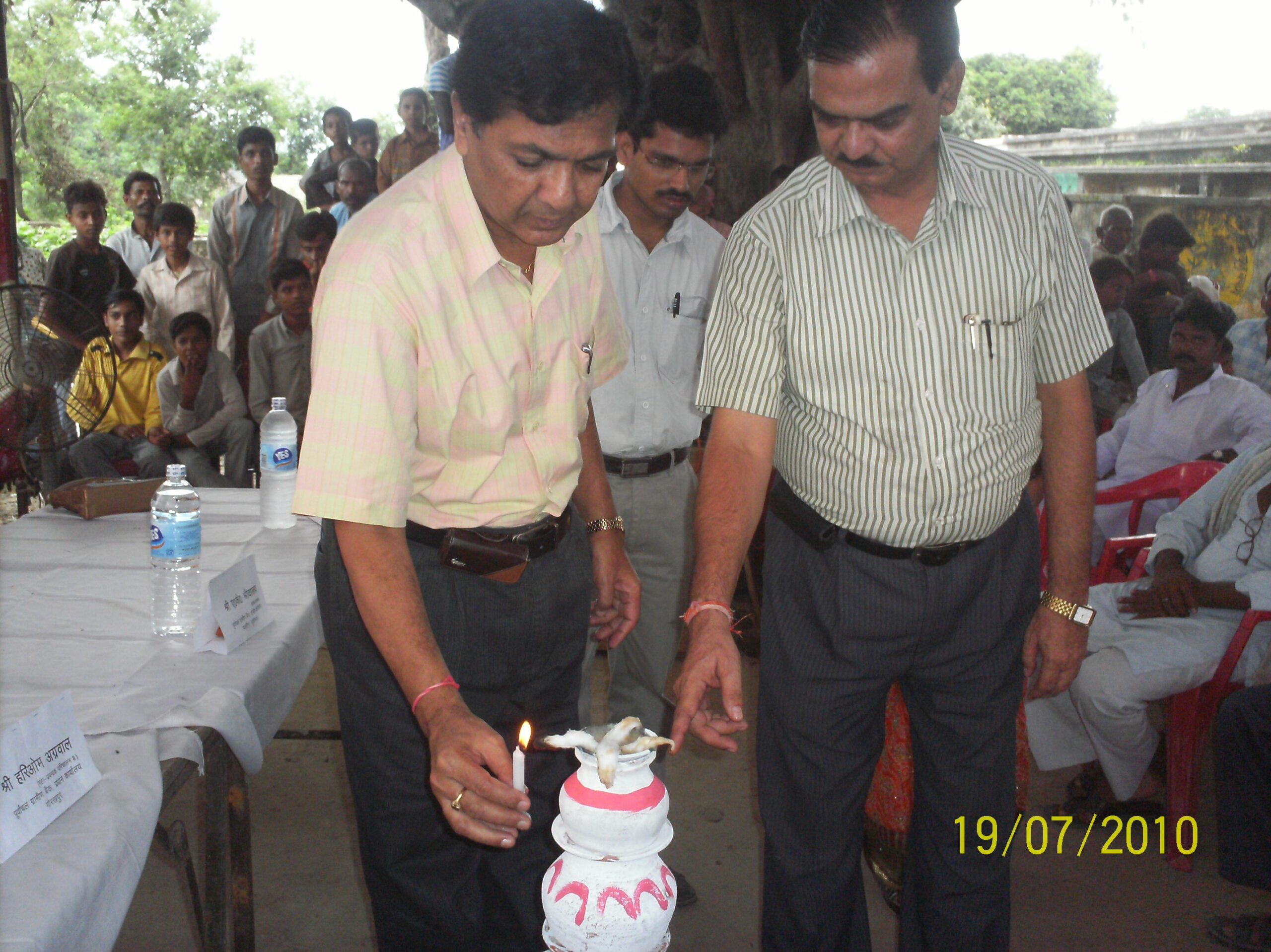


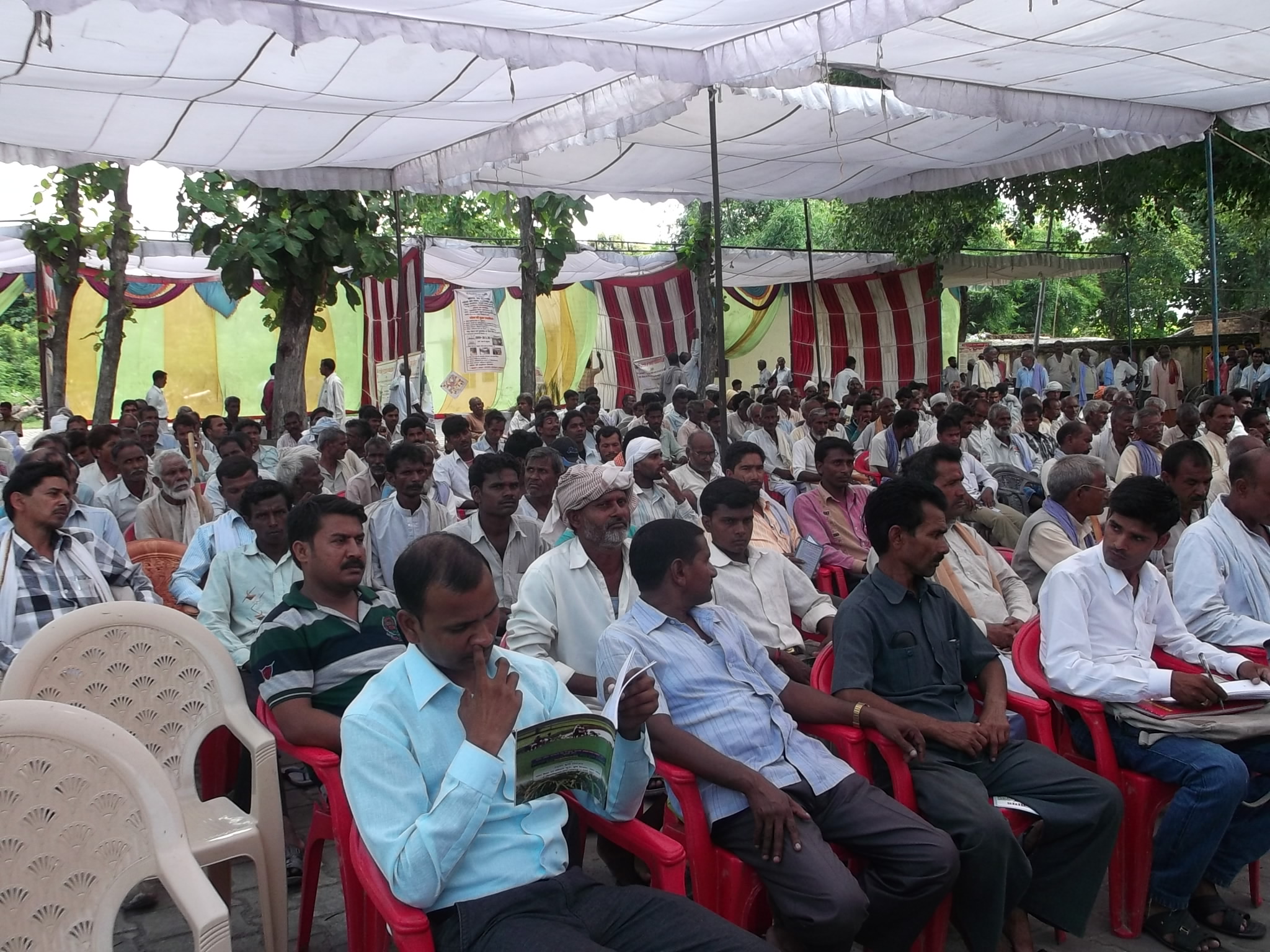
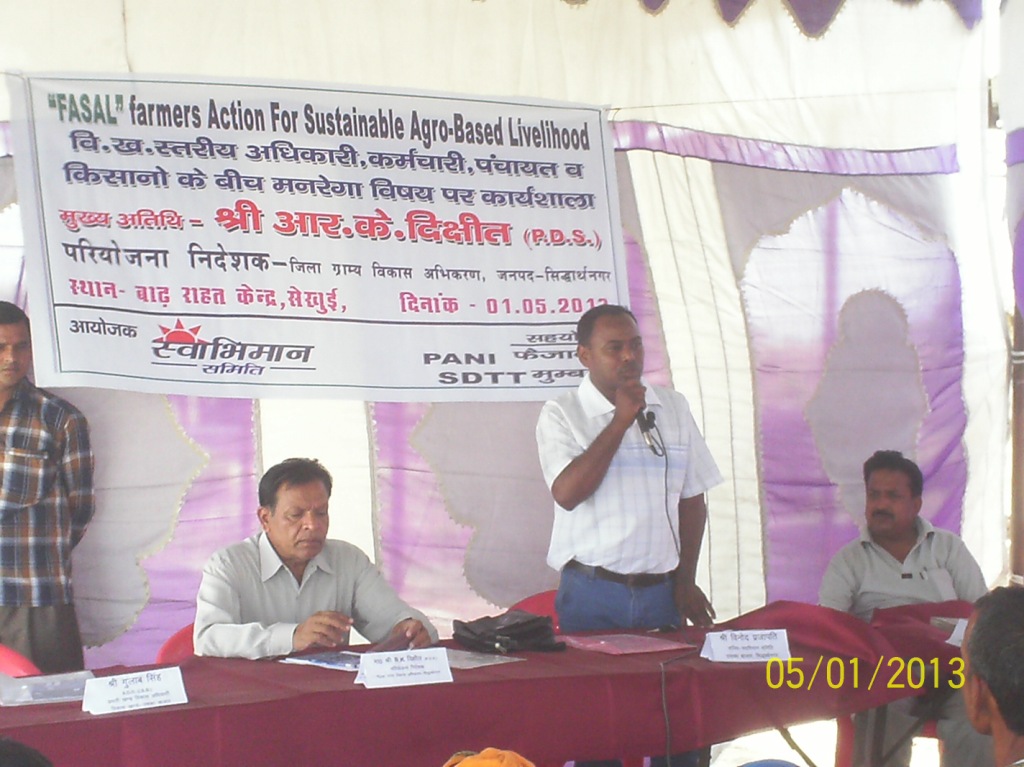

Project Details
- Project Name:
- Krishak Club Program (2009-10)
- Thematic Area:
- Agriculture, Rural Development
- Outcome:
- Improved agricultural practices, financial inclusion, and enhanced community-based farming through the establishment of Krishak Clubs.
Funded By
- Funder Name:
- NABARD (National Bank for Agriculture and Rural Development)
- Implementing Body:
- Swabhiman Samiti
Implemented By
Work Place
- Place of Work:
- Kushinagar District, Uttar Pradesh, India
- Year:
- 2009-10
Project Overview
The Krishak Club Program was initiated by Swabhiman Samiti to improve the agricultural practices and financial inclusion of farmers in Kushinagar District. Launched in 2009-10, the program aimed to create community-based platforms for farmers to access essential agricultural knowledge, government schemes, and banking services. The program targeted farmers in the Khadda and Nebua Kotwa development blocks, with the goal of improving productivity, promoting sustainable farming practices, and enhancing the financial wellbeing of farmers.
Objectives
The primary objectives of the Krishak Club Program were:
- Empower Farmers: Provide access to modern farming techniques, expert guidance, and resources to improve agricultural productivity.
- Enhance Financial Inclusion: Open bank accounts for farmers, enabling access to loans and subsidies from financial institutions such as NABARD and Purvanchal Gramin Bank.
- Promote Collective Farming: Strengthen rural communities by promoting collective farming practices and knowledge-sharing among farmers.
- Strengthen Linkages with Government and Banks: Facilitate access to government schemes and banking services to enhance financial and technical support for farmers.
Background and Rationale
The agricultural sector in India faces challenges such as outdated farming methods, limited access to modern technologies, financial services, and government schemes. In Kushinagar District, farmers have limited opportunities to engage with experts or access new agricultural practices and resources. The Krishak Club Program was designed to address these gaps by providing farmers with knowledge, support, and resources through community-based platforms, strengthening their ability to improve productivity and income. The program also focuses on financial inclusion, ensuring farmers can access essential banking services and government schemes.
Planned Outreach
The Krishak Club Program targeted farmers in the following areas:
- District: Kushinagar
- Development Blocks:
- Khadda: 11 Gram Panchayats, 15 Krishak Clubs at the revenue village level
- Nebua Kotwa: 16 Gram Panchayats, 19 Krishak Clubs at the revenue village level
A total of 52 Krishak Clubs were formed across 27 villages in the Khadda and Nebua Kotwa blocks, focusing on empowering farmers with knowledge, resources, and financial support.
Key Strategies
- Formation of Krishak Clubs: Establishment of community-based platforms where farmers could meet, share experiences, and receive expert advice.
- Capacity Building: Conducting training programs to enhance farmers’ knowledge on modern farming techniques, financial literacy, and agricultural policies.
- Linking with Financial Institutions: Partnering with NABARD and Purvanchal Gramin Bank to facilitate bank account openings and access to agricultural loans and subsidies.
- Government Scheme Awareness: Engaging with local government departments to promote available schemes and encourage participation among farmers.
- Media and Awareness Campaigns: Conducting village-level awareness sessions and demonstrations to increase participation and spread knowledge about sustainable agricultural practices.
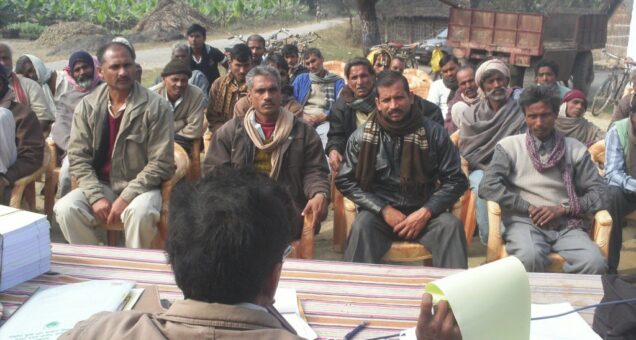
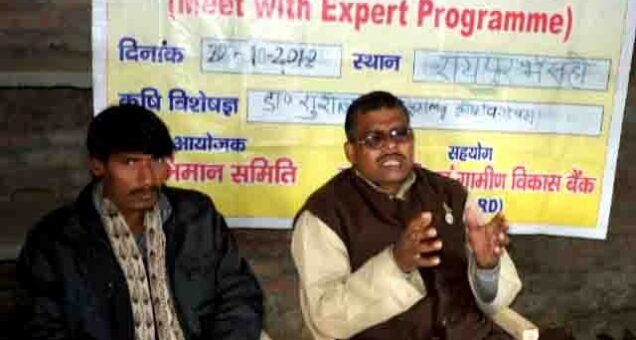
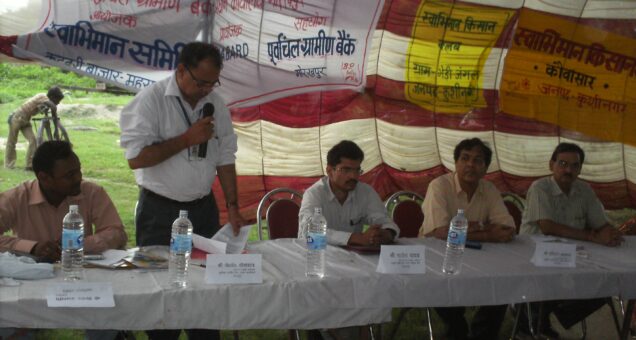
Core Activities
1. Formation of 52 Krishak Clubs
Establishing the Krishak Clubs in Khadda and Nebua Kotwa blocks, engaging farmers in community-level discussions and learning.
2. Base-Level Orientation Meetings
16 orientation meetings were conducted to introduce farmers to the Krishak Club program and familiarize them with the resources available.
3. "Meet the Experts" Program
16 expert sessions were held where agricultural scientists and specialists provided practical advice on crop productivity, pest control, irrigation, and soil management.
4. Opening of Bank Accounts
Facilitating the opening of bank accounts for farmers in partnership with Purvanchal Gramin Bank, ensuring access to loans and financial services.
5. Community Engagement and Awareness Campaigns
Organizing village-level awareness sessions to educate farmers about modern farming practices, financial literacy, and government schemes.
6. Training and Skill Development
Continuous training sessions on advanced agricultural techniques, financial literacy, and the benefits of collective farming.
Achievements and Outcomes
- Empowered 52 Krishak Clubs: A total of 52 Krishak Clubs were successfully formed, reaching farmers in 27 villages. These clubs provided a platform for farmers to share knowledge and discuss challenges.
- Financial Inclusion: Bank accounts were opened for farmers, ensuring access to loans and financial services. Farmers were introduced to government subsidies and loan schemes.
- Expert Guidance Provided: Over 16 "Meet the Experts" sessions were held, with farmers learning best practices for crop productivity, pest control, irrigation, and soil management.
- Improved Agricultural Practices: Through training and expert-led sessions, farmers gained knowledge on modern agricultural methods, leading to increased productivity and improved farming techniques.
- Increased Awareness: Awareness campaigns reached hundreds of farmers, educating them about the available resources, financial schemes, and sustainable farming practices.
- Stronger Community Networks: The Krishak Clubs fostered a sense of community, allowing farmers to collaborate, share resources, and implement best practices together.
Conclusion
The Krishak Club Program has been instrumental in improving the livelihoods of farmers in Kushinagar District. By providing access to modern agricultural practices, financial services, and expert guidance, the program has empowered farmers to enhance their productivity and income. The formation of 52 Krishak Clubs has strengthened the rural community, allowing farmers to collaborate and address challenges collectively. Moving forward, it is essential to continue supporting these clubs and expanding their reach to more villages, ensuring sustainable agricultural development and financial inclusion for farmers in the region.
